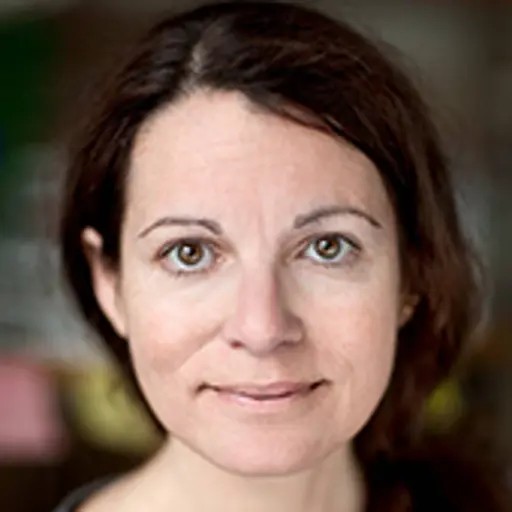
Pernilla Wittung-Stafshede, Professor of Chemical Biology at Chalmers University of Technology, has been appointed as an Honorary Fellow by the Royal Society of Chemistry, Great Britain. She is admitted as a recognition of her research on the role of proteins in degenerative diseases and cancer, her involvement in the Nobel Committee for Chemistry, and her commitment for gender equality in academia.
It came as a surprise to Pernilla Wittung-Stafshede when she read the email about her being admitted as an Honorary Fellow of the Royal Society of Chemistry. Until now, there are only two Swedish researchers who have been admitted as Honorary Fellows, one of whom is Bengt Nordén, Professor at the Department of Chemistry and Chemical Engineering at Chalmers.
"I was totally unaware that someone had nominated me, and it was an incredibly pleasant surprise. I see this as recognition that I have made significant contributions to research, but I am also delighted that they mention my commitment to gender equality," says Pernilla Wittung-Stafshede.
The drive to constantly continue discovering
Pernilla Wittung-Stafshede’s research focuses on proteins and their role in disease development, such as how metal-binding proteins can be linked to cancer and how misfolded proteins contribute to degenerative diseases like Parkinson's disease. Proteins have always been her research theme, but the focus has changed over time.
"There is always more to find out about what happens in biological processes. I never find it boring. The drive to constantly continue discovering is always there, but the questions change over time," she says.
Interest has shifted towards human health
At the beginning of her career, she mostly focused on general questions about how proteins fold into their functional forms. Over time, her interest became more focused on how certain proteins are involved in disease development.
"After much focus on fundamental questions about metal proteins and protein folding, my interest has shifted more and more towards research that directly relate to human health. It becomes increasingly important for me to answer scientific questions that can make a difference in society. At the same time, I always have a basic research perspective in my projects," says Pernilla Wittung-Stafshede.
Larger perspectives
Her overall perspective has also changed over time. From focusing on the smaller world within the research group, securing funding, and caring for students and their results, Pernilla Wittung-Stafshede has become more interested in larger perspectives. For example, her engagement for gender equality within academia, which led her to the leadership of Chalmers' gender equality initiative, Genie, when it started in 2019.
After several years within the initiative, she has now stepped down from the position and has received a significant research grant from the Knut and Alice Wallenberg Foundation – and now she is heading towards new goals.
What is your research focused on today?
"We have discovered that the amyloid fibres formed in the brain in Parkinson's and Alzheimer's behave like enzymes, meaning they catalyse chemical reactions. No one has investigated this before. We want to understand how this happens and which metabolites they can alter chemically. Perhaps this activity contributes to the progression of the disease by altering the levels of various substances in the brain? This new direction requires me and my group to learn more about enzyme kinetics and metabolites. As I said – research is never boring!."
More about Pernilla-Wittung Stafshede
- Elected member of the Royal Swedish Academy of Science in 2016.
- Member in the Nobel Committee for Chemistry since 2020.
- Elected member of the Royal Swedish Academy of Engineering Sciences (IVA) in 2020.
- Fellow of the Biophysical Society, 2022.
- Leader of the Gender Equality Initiative, Genie, at Chalmers University of Technology, 2019-2022.
- Press releases:
Copper a clue in the fight against cancer
New method shows how Parkinson's proten damages cells
Cancer cells spread using a copper-binding protein
Eating fish could prevent Parkinson's disease
About the Royal Society of Chemistry
- Connects scientists with each other and society as a whole, for new discoveries and innovation.
- Publishes new research.
- Brings people together to spark new ideas and new partnerships.
- Supports teachers to inspire future generations of scientists.
- Influence decision makers based on knowledge.
- Source: Royal Society of Chemistry
Contact

- Full Professor, Chemical Biology, Life Sciences